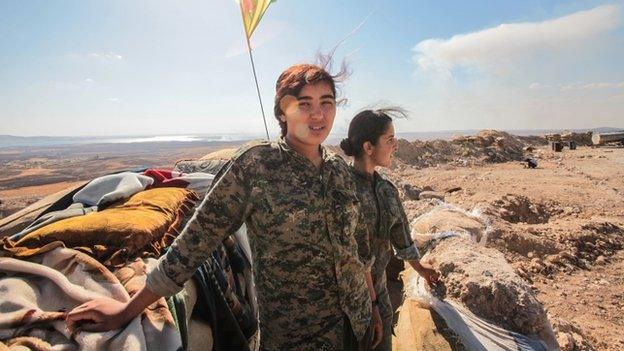Turkey: The erratic ally
- Published
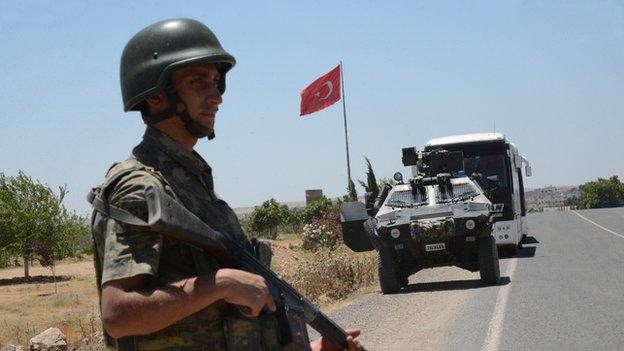
If you're sitting in the Pentagon or State Department there's good news and bad news.
The good news is that Turkey is embracing the struggle against the Islamic State group with a vigour it has never shown before; bombing them; allowing US aircraft to use Turkish air bases for the same purpose; arresting hundreds of suspects in Turkey, and tightening security on the Syrian border.
The bad news is that President Recep Tayyip Erdogan is also taking the opportunity for an onslaught on a long-standing enemy of Turkey's, the PKK Kurdish extremist group.
So keen are the Americans to disabuse people in the region that they've given any sort of green light for this attack on the Kurds that a senior official, Brett McGurk, tweeted an unusually blunt message, pointing out "there is no connection between these airstrikes against PKK and recent understandings to intensify US-Turkey cooperation."
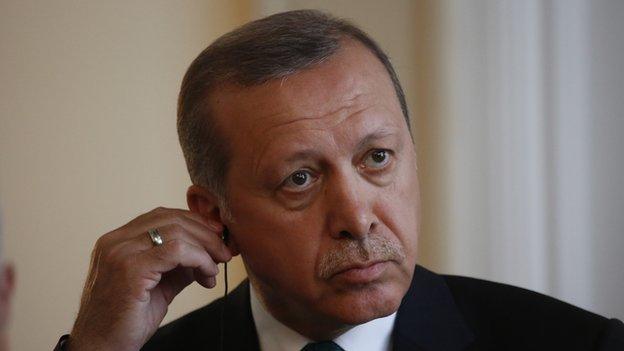
Turkey's President Recep Tayyip Erdogan
After Turkey called an extraordinary meeting at Nato on Tuesday, its allies are nervous that it could link its actions against IS and the PKK in ways that they would rather avoid.
For the Americans, strikes against Kurdish armed groups in Iraq and Syria are highly unwelcome because these troops are one of the few reliable partners they have on the ground in the struggle against IS. To the Turks, the so-called Caliphate of IS and the PKK are two sides of the same coin - terrorist movements that endanger their security while exploiting the power vacuum in northern Syria and Iraq.
Syria conundrum
Mr Erdogan apparently calculates that hitting the PKK, against which Turkey fought a long and bitter insurgency, will not overly endanger his relations with the US or a two-year-old ceasefire with the Kurdish group; nor will they shatter the peace of south-east Turkey more generally. He tested the waters last October with air strikes against PKK bases inside Turkey, which despite some angry rhetoric and Kurdish street protests did not reignite a full-blown insurgency.
His actions exploit the fact that Kurdish politics is very factional, with many Turkish Kurds rejecting the Marxist-hued politics and violence of the PKK. Furthermore Mr Erdogan has built good relations with the Kurdish factions in northern Iraq that have not so far been endangered by military action against the PKK.
Syria presents a trickier conundrum, because the PKK is closely linked to the Kurdish People's Protection Units (YPG), which, backed by coalition air power, successfully fought off IS in Kobane and has expanded the area under its control. The YPG is another Marxist group closely aligned with the PKK.
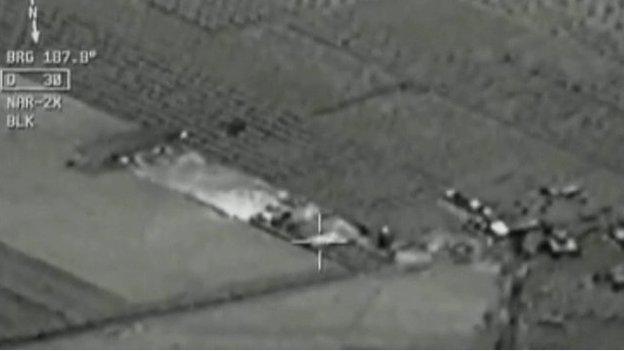
Turkey has launched airstrikes on the Kurdish PKK group in northern Iraq
For Nato ambassadors, the risk therefore was backing anything that might lead to a new conflict in south-east Turkey or endanger recent gains by anti-IS forces in northern Syria.
At the same time, they had to acknowledge both the importance of Turkish co-operation against IS and its right to self-defence against groups, including the PKK, that might bring terror to its streets.
These calculations could become even more fraught if Turkish troops enter Syria to create a buffer zone. Mr Erdogan has been toying with this idea for the past two years - seeing it as a way to fill a power vacuum, thwart the Kurds, and give a serious blow to the regime of President Bashar al-Assad. Now there are reports suggesting that the US has agreed to a limited buffer zone.
If Turkish armour does indeed roll across the Syrian frontier, President Erdogan's gamble will be that the US and Nato have little choice but to back him. The consequences in terms of the fractured politics of Kurdish nationalism and the Syrian opposition would though be far harder to predict.
- Published28 July 2015
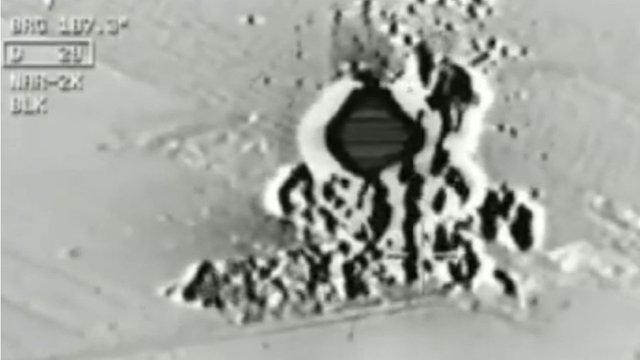
- Published27 July 2015
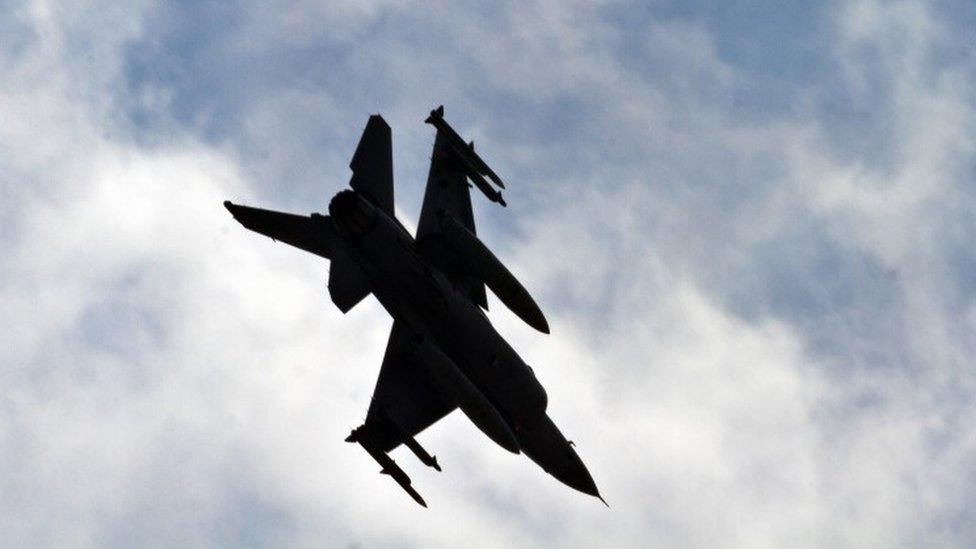
- Published27 July 2015
